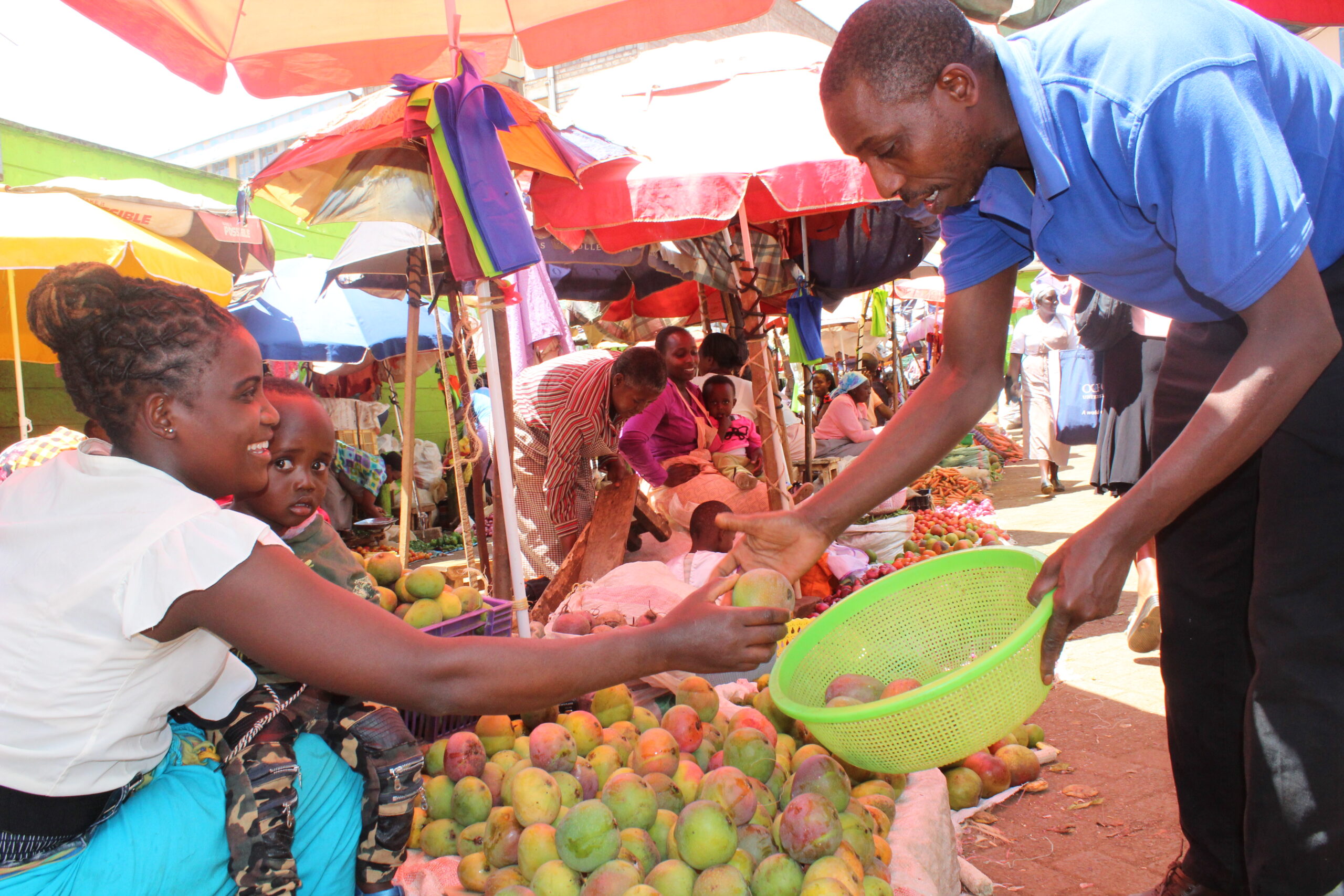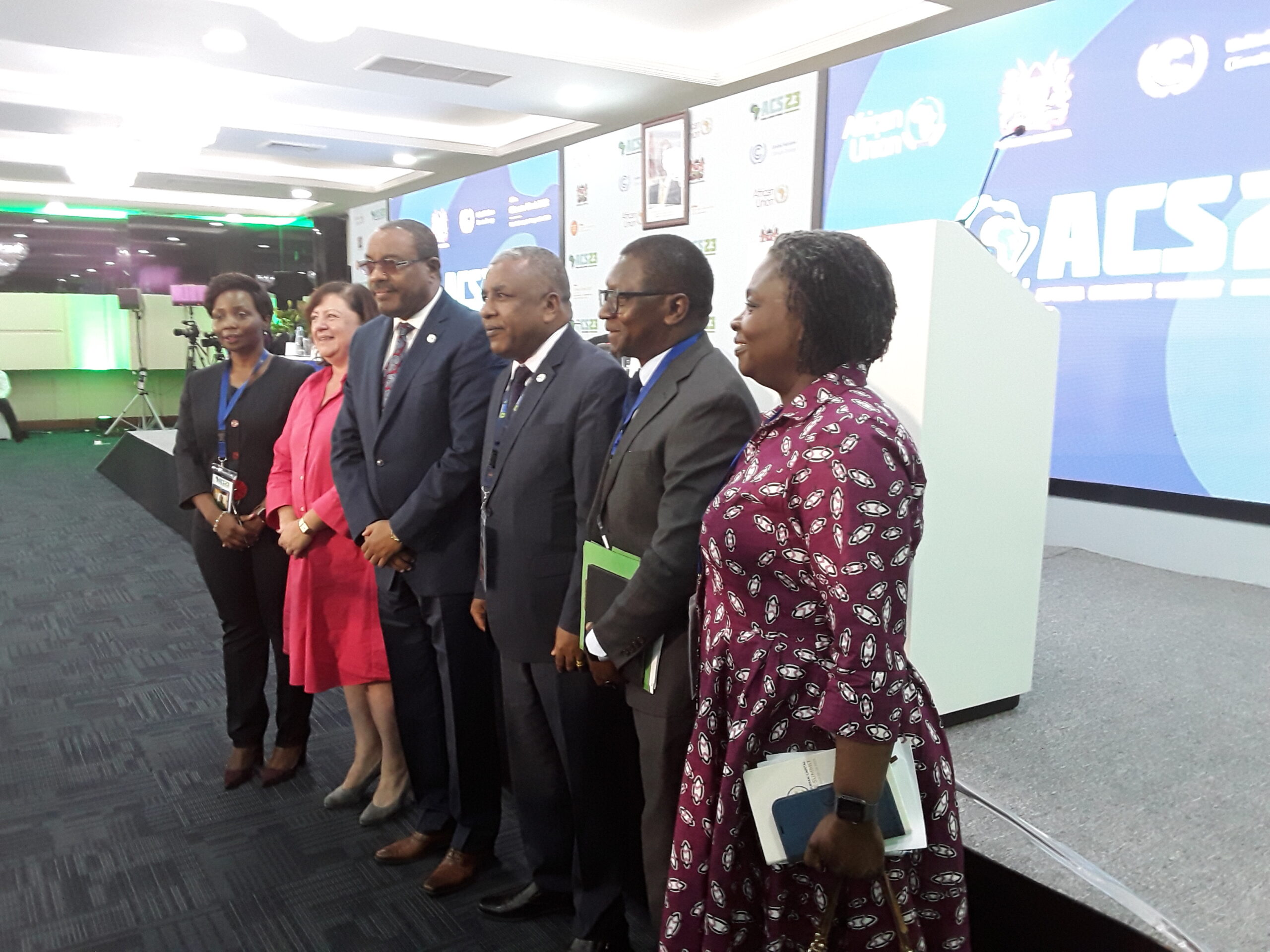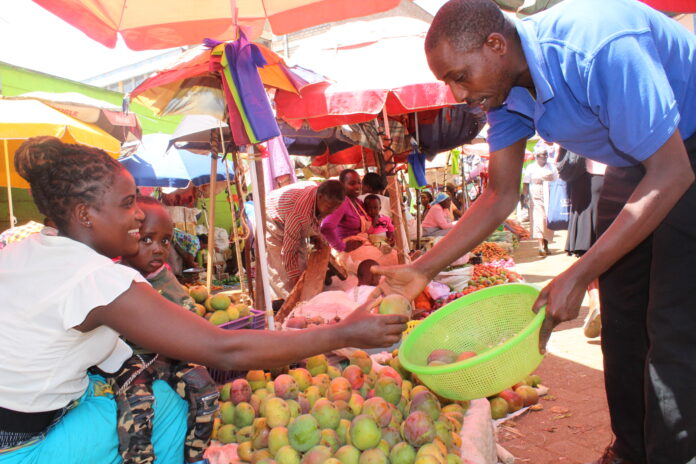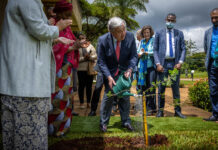By Joyce Chimbi
Nairobi, Kenya: An increasing number of African countries are in the throng of a spiraling food crisis instigated by erratic and drastic changes in weather patterns. The deterioration in food security is such that in the greater Horn of Africa, nearly 60 million people are in an elevated state of acute food insecurity and need urgent food assistance.
One in five people in Africa or an estimated 20 percent of the population are facing hunger, a staggering figure compared to 9.1 percent in Asia and 8.6 percent in Latin America. Globally, 10 percent of people are facing chronic hunger compared to 20 percent or a fifth of people in Africa
At the heart of discussions at the ongoing Africa Climate Summit convened in Kenya’s Capital Nairobi, September 4-6, 2023 under the theme, ‘Driving Green Growth and Climate Finance Solutions for Africa and the World’ is the need to transform Africa’s food systems by assessing their contribution and vulnerability to climate change.
“We are in a crisis of hunger, thirst, and disease due to the impact of climate change on agriculture. People are unable to put food on the table and when they can, food types that they can afford cannot meet the nutritional requirements. To fix our broken food systems, we must embrace the principles of agroecology,” says Adelaide Wanjiru, a Nairobi-based climate activist.

UN’s Food and Agriculture Organization (FAO) defines agroecology as the integrated approach that simultaneously applies ecological and social concepts and principles to the design and management of food and agriculture systems. These principles have proven crucial in building food systems that can meet Sustainable Development Goals (SDGs).
Wanjiru says that the contribution that agroecology has and can have on nutrition and food security is undeniable. Stressing that as a climate crisis snowballs causing deep and unprecedented food insecurities, “agroecology is the silver bullet. It is a holistic approach that is mindful of ecological and social systems.”
As human activity changes Earth’s climate in ways unprecedented in thousands or hundreds of years, unmitigated, the world is on track to lose one-quarter of all plants and animal species by 2030, with one species already dying out every 10 minutes.
Consequences for those on the frontlines of a climate crisis, mostly those in Africa and the larger global South includes severe negative impact on health. According to the World Health Organization (WHO), as the sub-Saharan Africa region entered a fifth consecutive failed rain season, the spread and magnitude of malnutrition are of great concern.
WHO recorded a “steep increase in Severe Acute Malnutrition (SAM) admissions in South Sudan and Kenya, the highest numbers in the last three years and an increased number in Somalia, Ethiopia, and Uganda from January 2022 to 31 March 2023.”
Hunger is the leading cause of death in the world. It is therefore of great concern that nearly 12 million children under five are likely to be acutely malnourished with 2.9 million of them requiring treatment for severe acute malnutrition in 2023, per WHO.
“Our food systems are in a crisis. Existing food systems are failing the people, the economy, and the Planet. These 20 percent of food insecure people and malnourished people are not benefitting from food systems as they should,” says Victoria Kwakwa, Vice President of Eastern and Southern Africa, World Bank.

Scientists define the current period as the Anthropocene- a geological era based on the impact of humans on Planet Earth. That humanity has touched Planet Earth in ways that will last forever if the situation remains unmitigated. The irreversible human touch is most visible in the extent to which existing food systems contribute to global warming.
“Food systems contribute to climate change but the food system is itself a victim of climate change. Food systems are responsible for an estimated 39 percent of all human-caused greenhouse gas emissions. Unless we transform our food systems, we will not meet the Paris Agreement target of reducing global emissions to 1.5 or well below 2°C,” says Kwakwa.
“There is a compelling case to transform our food system for a business-as-usual model will cost us $12 trillion per year in environmental, social, and economic damage to lives and livelihoods.”
Agroecology puts environmental concerns at the forefront in the management of arable land. It is the pathway that is most in line with the temperature goal of the Paris Agreement. The agroecology pathway represents an all-encompassing and all-inclusive systems framework to guide public policies towards sustainable agriculture and food systems
According to FAO, it “ensures the sustainable renewal of the natural resources necessary for production, such as water, soil and biodiversity. And it makes sparing use of non-renewable resources. By gradually eliminating the use of chemicals, it strives to implement organic farming as a means to improve the health of farmers and consumers alike.”
Kwakwa says that a transformative food system must take on a holistic and unified approach, must factor in climate change, and be backed by political goodwill for it to be effective. It should be anchored in incentives, innovation, and investment. The goal is to produce sustainable, nutritious and affordable food for all.”
Wanjiru says that Africa can feed itself by harnessing land as a critical factor of production and most importantly, addressing the gap that exists between food production and consumption, and gaps between policy and implementation.
Further emphasizing that agroecology is firmly in line with SGD 2, ‘end hunger, achieve food security and improved nutrition and promote sustainable agriculture’. The agroecology approach has shown a great capacity and potential to positively impact people and livelihoods as better management of land and its ecosystems leads to increased access to safe, nutritious, and sufficient food. Importantly, it increases farm productivity and helps maintain genetic diversity.
As the continent, backed by stakeholders from the global community continue to establish a new green path in all sectors of Africa’s economy at the first Africa Climate Summit, it is urgent that more and more smallholder farmers embrace agroecology to heal the continent’s broken food systems.














